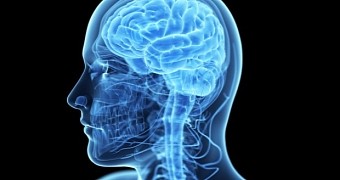When London-based pharmaceutical and biologics company AstraZeneca developed the experimental drug AZD05030, it expected it to treat cancer tumors. However, when tested, the drug failed to perform as desired. Even so, it looks like the company might still make some money off it.
Thus, in a series of experiments carried out in laboratory conditions, scientists at the Yale School of Medicine in the US found evidence that AZD05030 might help treat Alzheimer's, a neurodegenerative disease whose symptoms include memory loss, disorientation and behavioral issues.
In a recent report in the science journal Annals of Neurology, the Yale School of Medicine researchers detail how, after having been administered AstraZeneca's experimental cancer drug, laboratory mice with a model of Alzheimer's experienced a noteworthy improvement in their condition.
The drug restored connections between neurons, also memory
Alzheimer's disease correlates with a build-up of plaques in the brain. The plaques, comprising insoluble fibrous protein aggregates known as amyloids, are believed to keep neurons from communicating and, in doing so, trigger memory loss and other symptoms associated with this disease.
When treated with the experimental cancer drug AZD05030, the rodents that the Yale School of Medicine specialists experimented on all recovered their memory. This happened because the drug restored connections between their neurons and reduced inflammation in their brain.
“With this treatment, cells under bombardment by beta amyloid plaques show restored synaptic connections and reduced inflammation, and the animal’s memory, which was lost during the course of the disease, comes back,” study senior author Stephen M. Strittmatter said in a statement.
It is understood that AstraZeneca's AZD05030 successfully restored communication between brain cells and, consequently, the rodent's memory by blocking the activation of an enzyme, i.e. FYN, previously shown to damage connections between neurons.
Chances are the drug also works on people, the researchers say
Specialist Stephen M. Strittmatter and fellow researchers suspect that, if administered to people, the experimental cancer drug would have the same effect. Thus, they believe that AZD05030 can also address Alzheimer's symptoms in human patients.
In fact, they are so convinced that they are right that they are now looking to debut a clinical trial involving actual Alzheimer's patients. As part of this research project, led by Yale School of Medicine scientist Christopher H. van Dyck, 152 volunteers will be administered either the drug or a placebo.
The study, funded by the National Center for Advancing Translational Sciences, is open to men and women aged 55 to 85 and who have a diagnosis of mild Alzheimer's, Christopher H. van Dyck and colleagues detail.

 14 DAY TRIAL //
14 DAY TRIAL //